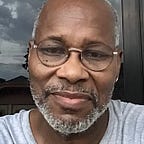We Give Politicians Too Much Credit
And Those Who Lift Them Too Little
President John Fitzgerald Kennedy came to Charleston, West Virginia for the state’s centennial. I was twelve. And had begged my mom to take me from the moment she first said no. That we could not really afford the bus fare from Rand, where we lived, to Charleston, the capital was not on my mind. I just knew I was excited to have the president come so close to me. No matter that he was world’s away from this poor Negro boy living in poverty in the poorest state in the country.
My mother relented the morning of his arrival though. After breakfast, telling me to get dressed. That we were going! I could barely contain myself. Giving no thought to from where the money might have come. And inspite of the rain that day my spirits lifted me as high as the soldiers who watched over us all from rooftops. It helped that people were nice. Perhaps because a slight built Negro woman and her tall awkward coke bottle glasses wearing son were of little threat. It was 1963 after all. A year that, with regards to civil rights struggles and violence, lives on still.
Clutching my mother’s hand as if she was my security blanket, when the Weir High School band started playing “Hail to the Chief” it was as if electricity moved through the crowd making us all stand taller, prouder. This was our president. And even if I did not grasp the full meaning of what being a president meant, though I would find out later in my life having become one myself, I did know, even at 12, he was responsible for solving the country’s problems, our problems, the world’s problems! This regard for the presidency stayed with me. As much as our trip to McDonalds afterwards. The first time I’d ever eaten in a restaurant.
Politics
Little did I know of politics when I was 12. The rumors of JFK’s father paying for the West Virginia votes that carried him to victory had not reached me until I was well into my twenties. Nor had accusations of connections with the mafia.
Little did I know when Ronald Reagan became president, some fifty-six years later, that presidents had so much power. I mean that they could enrich themselves and their friends with impunity. The jolt of “trickle down” economics, wealth transfers, union busting, drugs and illegal wars redefining the country.
Little did I know when Donald Trump became president they could do all of the above, and more, with the support of millions who would never see a dime. That they could treat the presidency like a part-time job, install their family in key leadership roles and meet with foreign adversaries without accountability.
Little did I know that under presidential leadership a two tiered justice system can be weaponized. More widespread, instead of predictably targeted! That Congress could conspire with a president to stack the Supreme court with bias instead of democracy’s ideals. That presidential appointments could be made to serve the interests of one person, or an ideological agenda, rather than the needs of the nation.
“And it was that legislature — the one (William Claude) Jones presided over in 1864, after he had already abandoned his first wife, and married a 12-year-old and was just weeks away from marrying a 15-year-old, though still a few years away from marrying a 14-year-old — it was that legislature that passed a law reading, ‘Every person who shall administer or cause to be administered or taken, any medicinal substances, or shall use or cause to be used any instruments whatever, with the intention to procure the miscarriage of any woman then being with child, and shall be thereof duly convicted, shall be punished by imprisonment in the Territorial prison for a term not less than two years nor more than five years.’” https://www.washingtonpost.com/2024/04/10/
Al Fin: Ignorance Is A Bless We Can Not Afford
Many of us of a certain age have been indoctrinated towards a flag waving patriotic regard for our political leaders. I’m not sure if it grew out of the nation’s regard for the “Greatest Generation” of leaders the country has had: Roosevelt, Truman, Eisenhower. And then came the Kennedy years, Camelot. Cut short by an assassin’s bullet that ironically opened the door for the exaltation of LBJ.
Washington, Adams, Jefferson, Madison, Hamilton, etc., were revered until I learned how the country was really “founded.” The lineage of omitted lessons links Jefferson’s rape of Sallie Hemmings and other slave girls to Arizona’s 1864 abortion ban to the rise in abortion bans across the U.S to the treatment of women as property. It’s the same lineage that links Haiti’s instability, Lumumba’s assassination and generational wealth building to rises of fascism, imperialism and white supremacy. All are the context that must be considered when any discussion of diversity, equity and inclusion is had.
Over time, it becomes easy to forget those who disregarded the integrity of the office of the president. Or used the presidency to their own ends. Presidents like Yes, Andrew Johnson, Millard Fillmore, and Harding come to mind.
We are reminded again however, or perhaps better said, we again face the specter that the hiatus from who the nation is, or was intended to be, is again at an end. The Obama presidency proof that the possibility of change, a respite enjoyed by many, has become an instigator of a movement’s veracity focused on returning the country to it’s past. Which gets us to a lesson many of us learned while becoming more than what we were supposed to be - ignorance is a bliss we can no longer afford!
